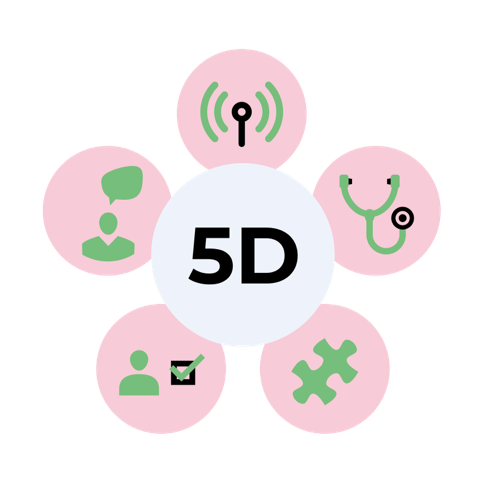Detect
Teachers explore the problem together with researchers.
Discover our model for cyclic, sustainable improvement of education.

In the co-creation labs, we employ the 5D methodology (Klaveren & Cornelisz, 2021) to achieve sustainable improvement and innovation in education. This model describes a process with five consecutive phases to achieve sustainable educational enhancement: problem identification (Detect), diagnosis (Diagnose), development and implementation of intervention or policy (Design), scientific evaluation (Determine), and interpreting the findings to make an informed decision about what the next step should be (Decide).

Detect
5D methode

Diagnosis
5D methode

Design
5D methode

Determine
5D methode

Decide
5D methode
Connecting knowledge from experience and science
Sustainable education improvement
Teachers explore the problem together with researchers.
Teachers and researchers make a diagnosis based on literature study, data analysis and simulation models.
The researchers and teachers formulate promising interventions. These are then implemented in the form of pilots in educational practice.
The interventions are tested at various schools. Afterwards, both the effectiveness of the interventions and the process are carefully evaluated, and teachers and researchers jointly determine whether the intervention is promising.
In the final step, teachers and researchers decide whether and how the intervention can be successfully scaled up.